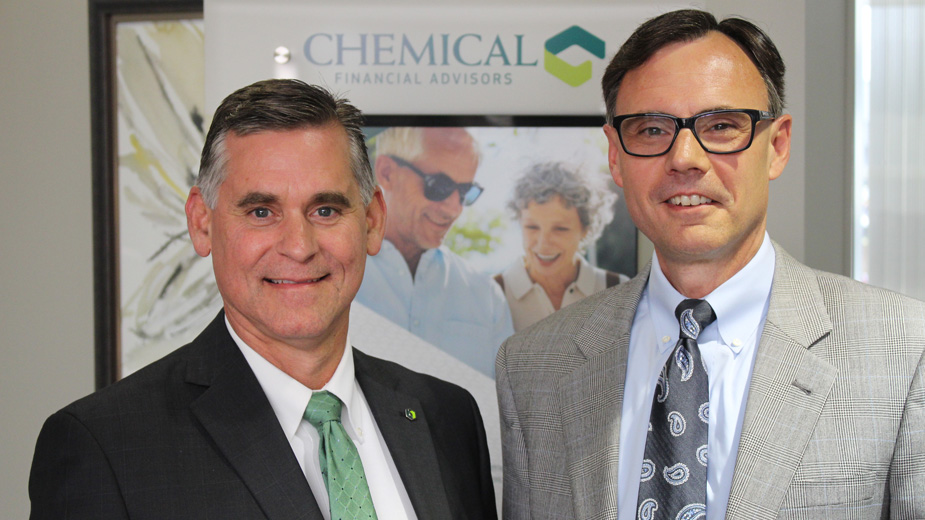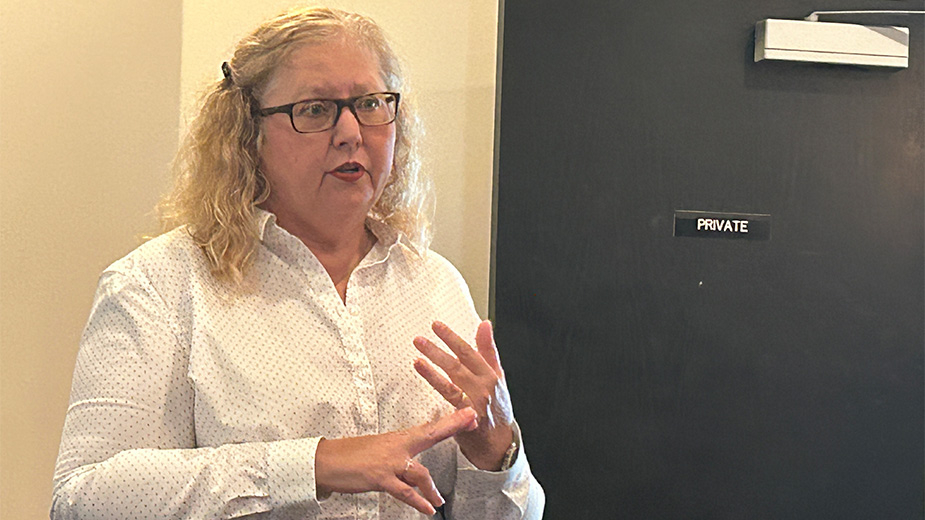Wealth Management Goes Full-Circle at Region’s Banks
YOUNGSTOWN, Ohio – Many financial decisions are made by individuals from the time they graduate college and start a career, to the time they retire and leave a legacy for the next generation of their family.
Banks have become one-stop shops for the financial steps customers take as wealth management divisions provide a full range of services.
“We have a full-circle capability,” says Mark Wenick, vice president and chief wealth management officer of Farmers National Bank. “Whether it’s meeting with a young professional and we’re taking them all the way through to the point of retirement, or we’re meeting with a young business owner, taking them through retirement and if they’re passing it to the next generation.”
Branded as Farmers Wealth Management 360, Wenick’s division encompasses private banking, trust, retirement, insurance and investment services.
Similarly, Cortland Bank, Chemical Bank, PNC Bank, Home Savings Bank and Huntington Bank have operating units that offer a full menu of wealth management services.
Although some banks require a minimum of $1 million in assets,” Wenick says, “it’s more about need. If you have a young professional, a doctor, an accountant, a lawyer, an architect or small business owner – all those people we provide wealth management services to at Farmers that every one of those folks could use.”
Farmers has four private bankers who are the single point of contact for wealth management customers. Once the private banker learns the customer’s needs, he can connect the customer to the right contact within the bank.
“Their role is to understand the situation well enough to know what the needs are,” Wenick says.
For young business owners, most of their immediate needs are focused on building their business, cash management and dealing with student loan debt. An older business owner, on the other hand, may just need help with succession planning.
“The way we make our money is when you make your money,” Wenick says. “If your portfolio grows, our revenue grows along with you.”
At Cortland Bank Private Wealth Management, portfolios can range from $25 to several million dollars, says program manager Nicole Jervis. “Everyone needs some level of planning and tellers see different needs from different clients. We try to cover all different types of events in a client’s life.”
No matter the assets a customer has, the process for profiling each customer begins the same way.
“We sit down and try to identify needs of clients and see what their needs are in the future,” Jervis says. “We try to solve for the types of accounts they don’t have or think they should have.”
Cortland’s wealth management group meets with customers monthly or semi-annually to review financial plans, depending on what the customer wants. Due to recent volatility in the stock market, customers want to meet more often, she observes.
“Clients haven’t seen this in quite some time,” Jervis says. “Where others might back away, we see it as an opportunity to meet more with our clients.”
For customers who want to invest in equities but are struggling with student loans, it’s best to first reduce the debt, Jervis says.
Cortland’s wealth management group starts with budget planning. “When you allow people to write out what their monthly budget looks like on a piece of paper, it’s amazing what that can do,” she says. “They’ll find if they’re spending $50 at Dunkin’ Donuts each month, instead they can invest that $50 somewhere else or pay off debt.”
When a customer first meets with Chemical Bank wealth planner Kenneth Kondas, “We like to sit down and do a financial plan because through that process you learn a lot about a client,” he says. “We do an in-depth question-and-answer period. Then it’s taking a step back, looking at that and developing a plan to meet those goals.”
To assess risk tolerance, Chemical Bank uses questionnaires and is looking to implement facial recognition software technology, named Decipher. This technology will be able to read a client’s risk tolerance and financial behavior.
“They may be telling us one thing but their body language is telling us something different,” Kondas says. “And this tool has the ability to recognize those differences and clue us into that.”
Assessing risk is important for Chemical Bank’s customers so that they can assume what their rate of return from their investments will be, which have an effect on the overall plan.
“If someone is aggressive, that assumption is going to be a little bit higher,” Kondas says. “If they’re conservative, that assumption is going to be lower.”
With more volatility in the markets, having an accurate plan can provide some comfort to customers.
“We’re making some assumptions but we know within a relative swing, they’re still going to be okay and that’s what they want to know,” Kondas says.
At PNC Bank, David Alt, head of responsible investing, finds there is an increase in responsible investing from his wealth management customers compared to years past.
“In the last two to three years, there is so much more [environmental, social and governance] data allowing both investment managers to make better decisions and allowing clients to receive better info on the companies they’re investing in,” Alt says.
Responsible investing considers financial return and the social or environmental impact. It has become popular among PNC’s customers, from nonprofit organizations to clients with portfolios over $20 million. “More and more we’re seeing individuals in organizations realizing it’s possible to align missions with their investments that doesn’t sacrifice performance,” Alt says.
Other concerns wealth management customers raise center on how the Tax Cuts and Jobs Act of 2017 may affect their financial plans.
“One recommendation we make to all clients is to review existing planning documents, estate planning documents, wills and trusts, nuptial agreements and business buy-sell agreements,” says Emily Klink, market leader for PNC Bank’s Youngstown wealth management team.
Klink says it’s especially important to review financial plans following any change in tax laws or when a major change in the family occurs, such as the loss of a spouse.
When Denise Penz, executive director of wealth management at Home Savings Bank, reviews a financial plan with a customer, she says, “It’s about helping them interpret the plan they have in place and helping them understand what they think it says.”
When it comes to estate planning, “No one should think they don’t need anything,” she adds.
Home Savings helps customers create an estate plan by working closely with the customer’s attorney. The plan can be as small as a will or expand all the way up to sophisticated plans, with a trust with special conditions. For example, if an individual has a family member with special needs, it can be ensured that family member receives the trust.
“Every person should have an estate plan, but the complexity varies with each client,” says Tiffany Rockstroh, vice president and director of private banking for Home Savings. “We work hand in hand with attorneys and staff to accomplish that plan.”
Similarly, Huntington Bank works with attorneys and accountants to reach clients’ financial goals. The most common goal is “financial security,” says Mary Beth Houser, relationship manager for Huntington.
Other goals customers want in a plan are to leave a legacy for family members or for a charity. For family members, customers typically use a trust that is distributed to pay for certain expenses in someone’s lifetime or until the person reaches a certain age.
“With charities, you have other options,” Houser says. “We work with local foundations. Some choose to set up donor advised funds or some people choose to set up their own private foundations.”
“Every adult should at least start to think about his or her estate plan,” she says. “It’s an act of love if you have people to leave behind – even if you don’t expect to leave them behind anytime soon. The best thing you can do is to make your wishes known through appropriate written documents.”
Pictured: Michael Schrock, regional president of Chemical Bank and Kenneth Kondas, wealth planner for Chemical Bank.
Copyright 2024 The Business Journal, Youngstown, Ohio.



